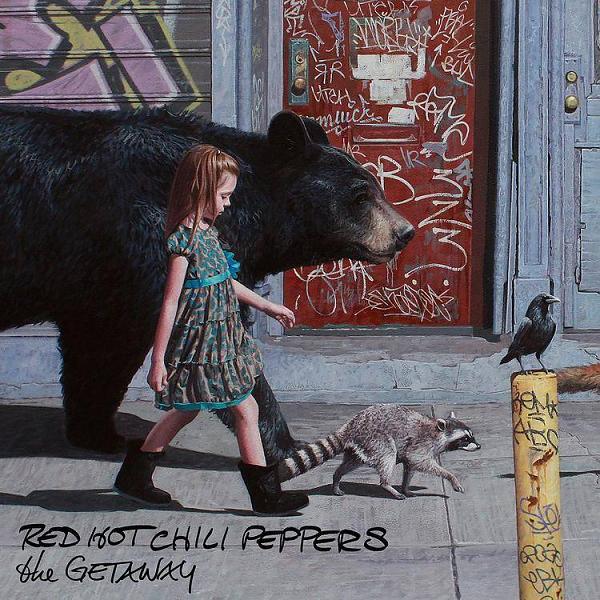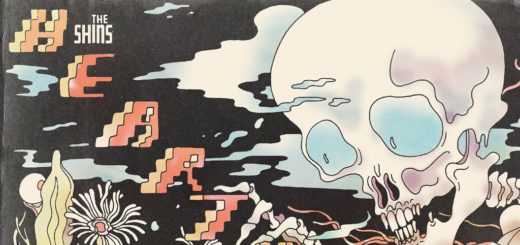THE GETAWAY by Red Hot Chili Peppers

Genre: Alternative Rock
Favorite Tracks: “Sick Love,” “We Turn Red,” “Dark Necessities,” “Detroit,” “Goodbye Angels”
Red Hot Chili Peppers’ 11th studio album THE GETAWAY strikes a near impossible balance of being both unrecognizable and unmistakable as a Peppers record. At first glance, THE GETAWAY is a complete departure from anything the band has ever done, but if you listen closely enough you will see that the album is a guided tour through their 30+ year career.
THE GETAWAY is the second Peppers album to feature Josh Klinghoffer as the lead guitarist. Where Josh struggled to wow fans with his ethereal style in 2011’s I’M WITH YOU, his guitar playing on this record is confident and bold, and he provides backup vocals that are a welcome upgrade from his whiny first attempts.
Intentional or not, almost all of THE GETAWAY’s 13 tracks takes inspiration from the Red Hot Chili Peppers’ entire discography. “We Turn Red” is the beefy cousin of “The Righteous & The Wicked” from BLOOD SUGAR SEX MAGIK. Recording quality aside, it wouldn’t be hard to convince the layman that “This Ticonderoga” is a B-side from THE UPLIFT MOFO PARTY PLAN, their record from the 80s. Anthony takes his singing rhythm on “Detroit” from last album’s “Ethiopia.” Like every other RHCP album, the California love is strong in this one, with a third of its songs referencing Los Angeles. We even see the return of Anthony’s sexually explicit (and wholly uncomfortable) lyrics, this time exploring the carnal attraction between man and machine in “Go Robot.” If you’re a Peppers fan, you’ll appreciate the history steeped throughout. Even if you’re not, there are plenty of pleasant surprises dispersed throughout the listen. Yet there’s something off about the album, something just off enough to keep this from being a truly memorable LP.
One of the major issues with THE GETAWAY is that the most unlistenable portions of it exist on the same tracks as the record’s best sound bites. “The Longest Wave” at first glance is a complete throwaway track that truly feels like two steps backwards in the band’s songwriting maturity, until the chorus kicks in serving up that rock-ballad goodness of STADIUM ARCADIUM fame. “We Turn Red” delivers on that full sound I expect from the Peppers, with every member giving a standout performance that works seamlessly together when it would be all too easy for it to feel crowded and messy. However, the song moves back and forth between being a hard funk hit to a twangy fingerpicked slow jam reminiscent of the Beach Boys; both parts are elegantly woven together and enjoyable in their own right, but it is a slap in the gut to hear the grooviest song THE GETAWAY has to offer slowed to a crawl every 30 seconds. THE GETAWAY is a frustrating listen, full of uninspired songs with payoffs in the middle that make them worth suffering through or, conversely, seemingly likable songs that take a hard dip into momentum-killing songwriting suicide.
The first song and title track of the album sets an unfortunate tone for the rest of the 54-minute journey. It is a song that is catchy enough but never truly gets off the ground. When I listen to “The Getaway” and several other tracks on the record, I imagine drummer Chad Smith rolling his eyes as he’s forced to play simple and repetitive drum beats at a soft volume. The reality is much worse. Brian “Danger Mouse” Burton assumed the producer role, a job that Rick Rubin filled proudly for the last quarter century. If Chad’s drumming sounds lifeless, it’s due to Burton’s insistence on using loops instead of playing the whole track in full passes. Herein lies THE GETAWAY’s biggest problem: Burton’s tried and true production process fails in bringing out the spiciness of the Peppers. Any success THE GETAWAY manages is a testament to the band’s ability to work within these creative restrictions.
Despite my criticisms, I’ve listened to the record dozens of times. The payoffs are big enough that I willingly slog through the portions I find grating. If anything, THE GETAWAY reminded me that the Peppers were never a four-man outfit, but rather a quintet. Whether it was George Clinton or Rick Rubin behind the 1s and 2s, the producer has always been as foundational to their iconic sound as Flea’s slapping or Anthony’s non-sensical lyrics. All of this is to say that Brian “Danger Mouse” Burton didn’t cut it. There’s no denying his producing chops; Burton has done wonders for The Black Keys, U2, and many others. But perhaps he should’ve heeded Anthony’s warning from the album’s first single “Dark Necessity” when he wailed, “You don’t know my mind/You don’t know my kind” and just let the band with over a century of combined musical experience do what they do best.
Verdict: Recommend



